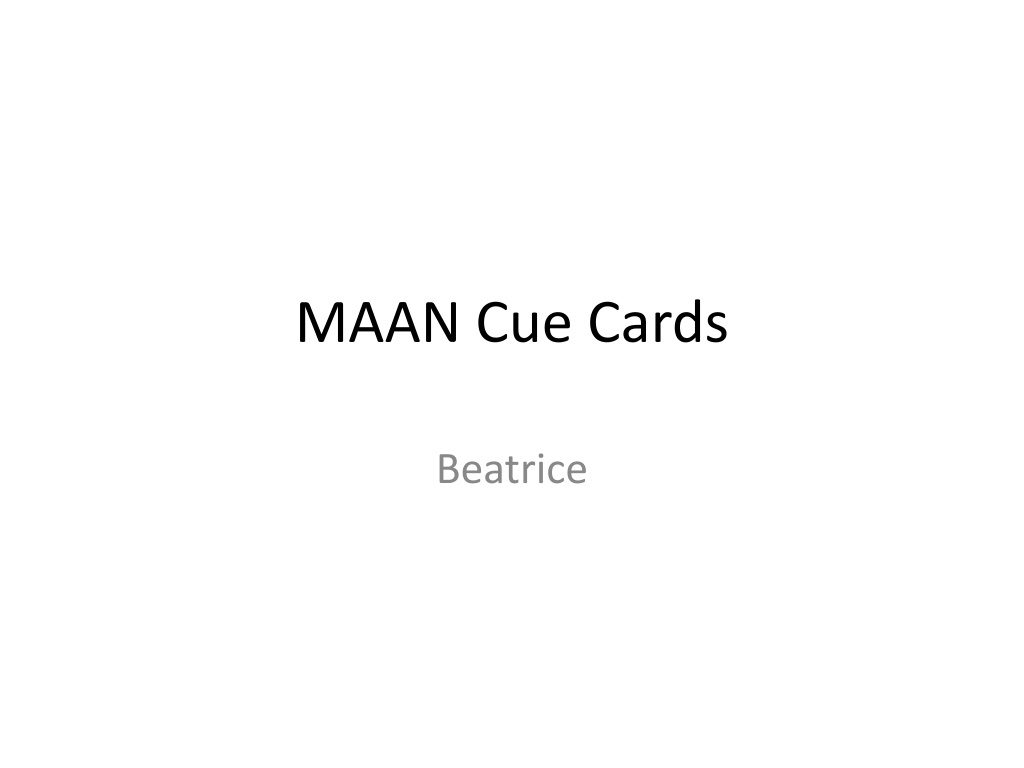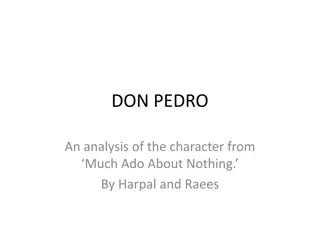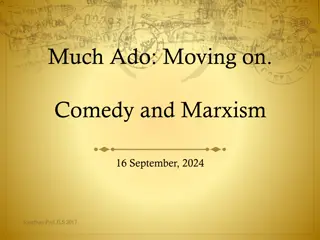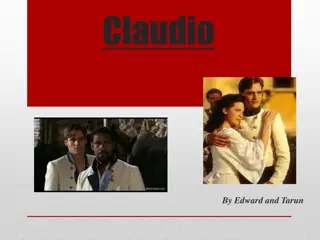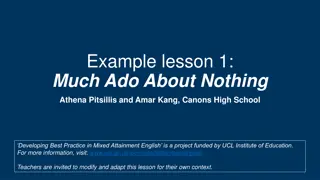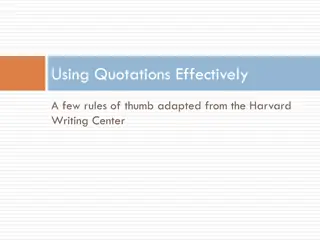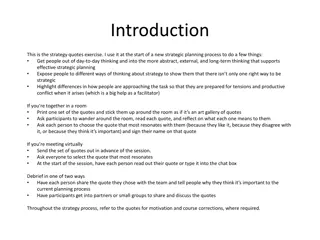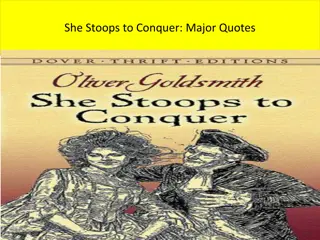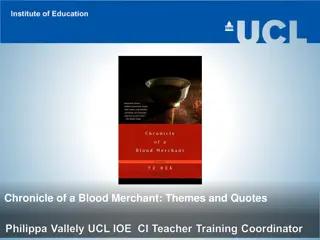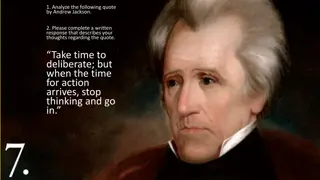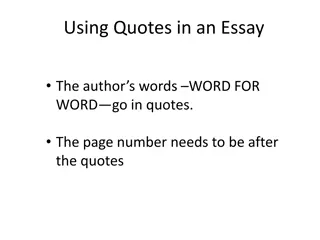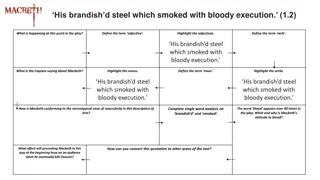Analysis of Beatrice's Quotes in Shakespeare's "Much Ado About Nothing
Beatrice, a character in Shakespeare's "Much Ado About Nothing," is portrayed as a strong and outspoken woman who challenges societal norms regarding love and marriage. Through witty and sharp dialogue, Beatrice expresses her views on relationships, particularly her aversion to men with beards and her humorous disdain for certain individuals. Her dialogues reveal her unconventional personality and feminist ideals, making her a memorable character in the play.
Download Presentation

Please find below an Image/Link to download the presentation.
The content on the website is provided AS IS for your information and personal use only. It may not be sold, licensed, or shared on other websites without obtaining consent from the author. Download presentation by click this link. If you encounter any issues during the download, it is possible that the publisher has removed the file from their server.
E N D
Presentation Transcript
MAAN Cue Cards Beatrice
Signor Montanto Beatrice 1:1
By saying this, Beatrice is displaying that she is an unusual and outspoken woman for the time, as she is interrupting two men (men are of higher status than women) and with a sexual innuendo. Also, a Montanto is a sword thrust, implying that Benedick is a ladies man. Furthermore, the fact that nobody scolds her about it shows that it is common for her.
A dear happiness to all women Beatrice 1:1
Displays that Beatrice is offensive and further shows that she is unusual, when she is saying that Benedick not loving any woman makes all women happy, as they wouldn t have to bear him.
He that hath a beard is more than a youth, and he that hath no beard is less than a man; and he that is more than a youth is not for me, and he that is less than a man, I am not for him. Beatrice 2:1
This shows that Beatrice is against marriage as she wouldn t marry either man, as bearded men are too old, and men without beards are too young, and she would break him. This quote contains two antithetical pairs, which illustrate the point above.
I had rather lie in the wollen. Beatrice 2:1
This short, sharp sentence gets right to the point that Beatrice doesn t want a husband with a beard, which was common fashion at the time, partly conveying her views about marriage. the wollen is under scratchy uncomfortable blankets.
He will hang upon him like a disease Beatrice 1:1
Use of a simile to compare Benedick to a disease, implying that Benedick will bring him down. Also a short sentence. Displays her wit, and also that she is unconventional as she is embarrassing Benedick in public. Can link to when Benedick says that Beatrice would infect to the north star (both are similar in using the idea of disease).
Kill Claudio. Beatrice 4:1
Short sentence that shows a substantial change in Beatrice s character from witty and childish to very serious and grown up. This shows great loyalty towards Hero as she is telling Benedick to risk his life in a duel in order to restore her honour.
Stop thy mouth Benedick 5:4
Beatrice become more of a typical or usual Elizabethan woman when she is to be married to Benedick. Portraying her change from living a bachelor to marrying. This is significant with regards to the Elizabethan era as it seems that Shakespeare is urging Queen Elizabeth to marry.
My cousin is belied Beatrice 4:1
This shows Beatrices loyalty as she is speaking out in public against figures of high authority such as Don Pedro in order to try to restore Hero s honour. Short sentence, noun, accusation.
Taming my wild heart to thy loving hand Beatrice 3:1
Shows a change towards the norm for a woman as she has moved from describing Benedick as a disease to wishing that he would [tame her] wild heart (noun and adjectives that link to animals) to his now loving hand , suggesting a change of opinion on Ben, or just an unveiling of previous underlying feelings.
Writ in my cousins hand, stol n from her pocket, Containing her affection for Benedick Hero 5:4
Also displays Beatrices change from unloving to loving, as not only does she love Benedick but she has also written him a sonnet conveying her feelings. Furthermore, as it was stol n from her pocket , and writ in [her] hand it is definitely from her.
